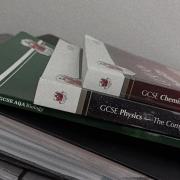
The weeks and months leading up to exams can be challenging for students,parents and teachers. Young people feel a boost in their stress levels and anxiety. So how can we revise better? Which techniques work? What can students do to develop their memory, mood and concentration?
Before starting any revision:
1. Eat breakfast
Approximately 27% of boys and 39% of girls skip breakfast either all the time or sometimes. Breakfast is extremely important due to the fact skipping breakfast lessens student’s attention and their ability to recall information.
2. Put your phone away
This may seem an easy and logical to do so yet, phones can be distracting. In a fascinating study, researchers discovered the sight of a phone, could reduce someone ability to focus. It is a great idea to keep you phone out of sight.
During revision:
3. Start early and spread it out
Actors don’t rehearse until the day before their show. Athletes don’t train the day before a competition. Spreading out your revision sessions on a module (eg one-hour sessions over 5 days) is more effective than spending the same amount of time in one go (eg 5 hours in one day). This is known as “spacing”. Spacing helps as it allows time for you to learn and re-learn the content, between revision sessions. This technique has been descibed as “one of the most robust across the entire history of experimental research on learning and memory”.
4. Test yourself Experts in the field of memory believe that testing yourself is one of the most effective ways to improve your ability to recall information. Testing yourself helps you identify any gaps in your knowledge. Practice papers are a good starting point and quizzes yourself at the end of your revision session.
5. Teach someone
After you have tested yourself, teach someone else the content. This can aid memory and recall: it is known as “the Protégé Effect”. Teaching someone else means you have to learn and organise your knowledge in a clear and structured manner.
6. Do highlighters really help..?
Despite being the go to tool for many students revising, research suggests they don’t work very well. If they are able to connect it to other pieces of information, people learn and recall information much easier. Using highlighters isolates single pieces of information.
7. Get some fresh air and exercise
It is wrong and ineffective to work all day, every day. Revision is about quality and quantity. Going outside for a short break and for fresh air helps people focus better afterwards. In addition, doing a little bit of exercise helps people deal better with demanding situations and it helps reduce nervousness and boosts self-esteem.
8. Sleep
There is a time for revision and a time for sleep. If you are unable to fall asleep within five minutes of their head hitting the pillow, they should probably go to bed earlier.
Revision time can be challenging but it is important to take care of yourself mentally and physically and not put a lot of pressure on yourself.


























